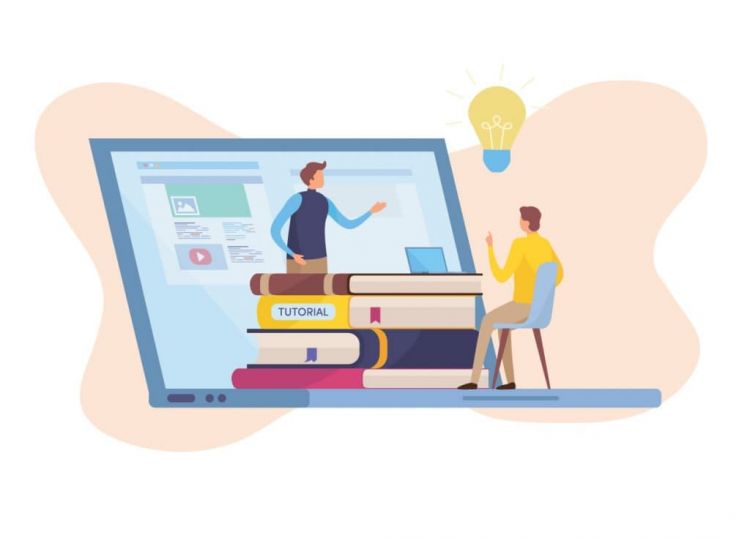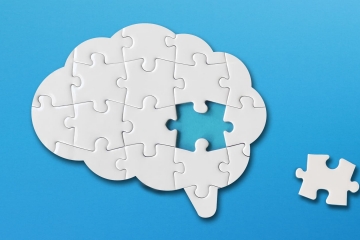
Immigrating to Greece or Cyprus isn’t just a change of country—it’s a cultural transformation, and language becomes the key to many doors: finding a job, integrating socially, feeling comfortable in daily life, and developing a sense of belonging. Yet for many immigrants, Greek remains an unattainable peak even after years in the country. The reasons are many—ranging from external circumstances to internal limitations. Let's explore why Greek can be so difficult to learn and what you can do about it.
English as a Convenient “Crutch”
For many immigrants, knowing English serves as a lifesaver during those early months in a new place. Indeed, in tourist areas in both Greece and Cyprus—banks, shops, and even some government offices—it’s often possible to get by speaking English. This creates an illusion of ease and comfort, helping you to settle in and survive the first challenges.
But over time, this perceived freedom turns into a trap. Relying on English can erode your motivation to learn Greek, making it feel like an unnecessary, “exotic” language. The thought creeps in: “Why bother learning Greek if English works?”
However, this “crutch” only gets you so far. Take a wrong turn, and suddenly you are at a public health clinic, trying to converse with elderly neighbors, or completing your tax forms—and the illusion shatters. Without Greek, you’ll struggle to handle important tasks on your own and will often need expensive translators or middlemen.
The Objective Challenges of Greek
Greek is not an easy language to master—plain and simple. Its grammar is nuanced: three grammatical genders, four cases, article declension, irregular verbs. These demand more than superficial familiarity—they require deep and consistent study. Without frequent practice and attention to detail, you won’t make much progress.
Spelling presents its own challenges. Multiple letters and combinations represent the same sounds, forcing you either to memorize rules meticulously or rely on visual memory for each word’s spelling.
Another major hurdle lies in the stylistic differences between spoken and formal registers. What you can easily understand in a street conversation or at the market may sound totally alien in a telephone call with a bank or when reading official emails.
Still, these objective difficulties are only part of the story. Equally important are the conditions immigrants live in post-move. Language proficiency depends not only on personal motivation, but also on lifestyle, profession, social circles, and the depth of immersion in a Greek-speaking environment. In some situations, a language feels like a necessity; in others, a burden.
Immigrant Groups and Their Adaptation Patterns
To understand why some immigrants quickly learn Greek while others don’t for years, it helps to look at key categories:
- Wives of Greek men often experience a kind of social isolation. Their lives revolve around the home, children, and Russian-speaking social media groups—none of which require Greek. If their husbands speak English or Russian at home, Greek remains peripheral, often unused for years.
- Tourism sector workers face a paradox: although their job involves communication, it’s almost always in English with tourists. Co-workers often speak English among themselves, so Greek remains unused both at home and at work.
- IT specialists and employees of international companies are immersed in English during meetings, emails, and tasks. Interaction with locals is minimal, slowing down language learning significantly.
- Students—schoolchildren and university attendees—are arguably the only group consistently immersed in Greek. Their classes, friendships, and daily communications are in Greek, and the results typically show within months.
Psychological Barriers: Internal and Social
Even with the best intentions, internal psychological barriers can derail language learning—often more decisively than external challenges.
- Fear of mistakes
One of the biggest barriers is the fear of making errors. Many hesitate to speak lest they appear foolish, be misunderstood, or be mocked. Especially perfectionists or those prone to self-criticism freeze up. But silence only strengthens that fear. Without speaking, there is no progress. - Negative past experiences
Negative memories from school—harsh corrections, humiliating grammar drills, lack of real conversational practice—can taint adult language learning. Outdated methods drive even the motivated away. - Learned helplessness
If your spouse, kids, or colleagues always take charge of everyday tasks, you may slip into a learned helplessness mindset: “Why bother when someone else will do it?” Language learning gets pushed to the back burner—often never resurfacing. - Lack of a clear goal
Vague goals like “I should learn Greek” do little good. They aren’t actionable, so your motivation flounders. But a simple aim, like “I want to order food by phone” or “understand the pharmacist”—those are manageable, rewarding targets that build real momentum.
In many cases, the real obstacle isn’t ability—but stress, fear, and lack of clarity. Successful language learning demands internal readiness and a clear “why.”

Immigration Trauma and the Ulysses Syndrome
To explain these internal barriers more completely, we need to view language learning as part of a larger emotional upheaval. Immigrating isn’t just moving geographically—it’s a psychological rupture. This chronic stress state is called the Ulysses Syndrome: a condition experienced by many immigrants.
Your early days in the new country are often euphoric—bright, hopeful, and full of expectation. Then reality bites: the culture shock hits, highlighting linguistic, cultural, and everyday differences. You feel alienated. Gradually, you adapt, form routines, and learn to manage. The ideal end state—social integration, feeling “at home”—isn't guaranteed. Unfortunately, many immigrants remain in survival mode, isolated and on the periphery of society.
It’s at that integration stage where language becomes pivotal. Greek unlocks the path to real social belonging. Without it, you can spend years in-country and never truly feel part of it, remaining culturally and socially disconnected.
At times, you may even adopt a defensive attitude: “I don’t want to integrate. Their language is ugly, their mentality alien.” Oftentimes, that’s not genuine rejection—but protest born from the feeling that integration is impossible.
What If It's Been Years but You Still Can’t Speak?
This scenario is all too common: 10–15 years in, yet still insecure with Greek. Shame, frustration, old prejudices, and bitterness show up. And you ask yourself: is it too late?
Absolutely not. You can learn a language at any age or stage in life. The key is to start!
Practical Steps and Learning Strategy if You’re Stuck
If you’ve stalled in learning, it’s not a reason to give up. Even after long pauses, you can restart. What helps is a simple strategy with consistent actions:
- Daily minimum
Ten minutes a day beats an hour once a week. Ease the language into your life—listen, repeat, jot down words. Consistency matters most. - Specific goals
Skip vague aims like “speak fluently.” Choose precise targets: order coffee confidently, fill out a form, chat about the weather. Small victories strengthen motivation. - Real-life communication
Don’t wait for fluency. Greet a neighbor, ask directions, speak to a shop assistant. Practice isn’t theoretical—it comes from living. - Expand your social circle
Seek Greek speakers through hobbies: dance classes, yoga, ceramics, workshop groups. This is where natural, everyday Greek happens, and where you begin to feel part of the community. - Find language-learning peers
Connect with others learning Greek. Group study, chat groups—they boost motivation and make you feel part of a shared effort. - Professional support
Courses, tutors, conversation clubs—they aren’t luxuries, but investments in your confidence. Especially when the teacher understands the immigrant’s journey. - Define your motivation
Ask yourself: why do I want to learn Greek? For everyday conversations? Work? Living fully? A clear purpose makes your work meaningful. - Tailor your learning style
Choose formats that align with you: audio, visual, kinesthetic. Podcasts, videos, spaced-repetition apps, or live lessons—choose what engages you most. - Surround yourself with Greek
Make Greek part of your environment: radio, signs, YouTube, UI language settings. Daily exposure helps your brain adapt. - Be flexible and adaptable
If one method stops working, try another. Books got boring? Switch to games or videos. Variety keeps motivation alive. - Accept imperfection
Allow yourself to speak with mistakes, accent, or imperfect grammar—it’s part of learning. People appreciate your effort, not flawless speech.
Where to Study
When it comes to the format, there are many different ways to learn today. The most important thing is to choose the one that suits you best — in terms of style, budget, and level of comfort.
- Volunteer-led free courses for beginners are often organized by municipalities or charitable organizations. For example: Μαθαίνουμε ελληνικά. Δωρεάν Μαθήματα Ελληνικών (volunteer group “Γέφυρες”)
- Paid group courses at universities and language centers offer structured learning and the opportunity to interact with like-minded people. You can enroll in in-person courses through the following links:
- Athens, National and Kapodistrian University
- Thessaloniki, Aristotle University
- Courses offered by the Ministry of Education of Cyprus - Individual in-person lessons with a native speaker — a great option for a personalized approach.
- Online schools offering Greek language instruction — convenient and effective, especially if you live in a remote area, work full-time, and cannot attend in-person classes.
Invitation to Skype-Language.com
If you're struggling with learning the language on your own and are looking for a teacher who not only speaks Greek fluently but also deeply understands the immigrant experience, the online school Skype-Language.com can become a reliable support for you.
Our Greek teachers are Russian-speaking professionals living in Greece. They know firsthand what immigrants face — they once went through all the stages of adaptation and overcame the language barrier themselves. Thanks to their personal experience, they understand your difficulties and can offer effective learning methods and support at every stage of your journey.
Language Is the Door to a New Life!
Learning Greek is more than another adaptation task—it is your key to understanding a culture, advancing professionally, forming real friendships, and feeling truly at home. Moving from relying on English to using Greek opens up new horizons, overcoming both external and internal barriers.
Yes, learning a new language isn’t always easy—especially during the stressing experience of immigration. But Greek transforms “living in” a country into actually *being* there. It becomes your home.

































